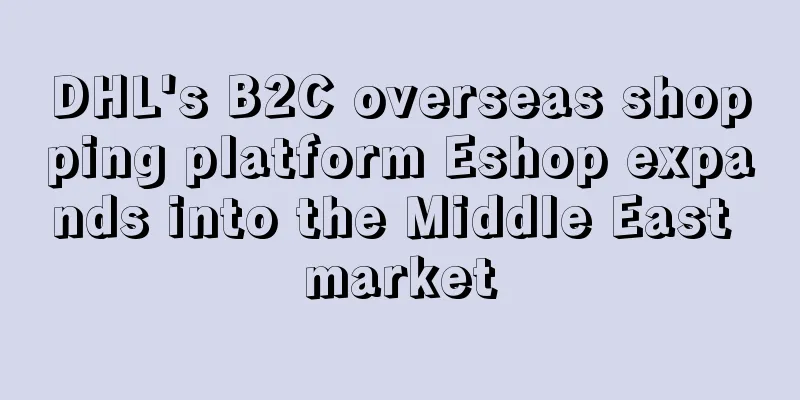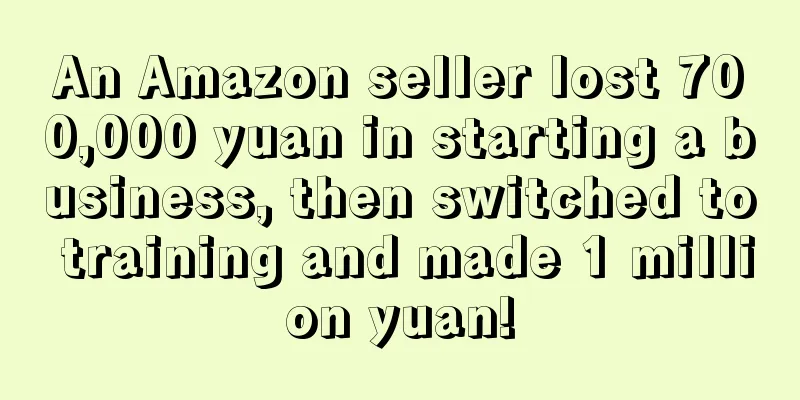DHL's B2C overseas shopping platform Eshop expands into the Middle East market

|
Whether or not new opportunities can be found has always been a key factor guiding the continued growth of cross-border e-commerce . The Middle East market has been one of the most attractive opportunities for e-commerce and cross-border sellers in recent years .
Recently, Horizon FCB Dubai launched the DHL Mena eSHOP application for the Middle East market, allowing platform shoppers to browse and purchase their favorite American brands with just a tap of a finger, and support consolidating multiple orders into one package.
It is reported that the application currently only supports four countries: Morocco, Saudi Arabia, UAE and Egypt, and accepts four payment methods: MasterCard, Visa, PayPal and Fawry.
Regarding billing, since each country has a different cost analysis. Shipping costs are based on an algorithm based on size, weight and volume dimensions. When consumers check out from the platform, they will see that the cost including product cost, shipping, handling and consolidation will be paid in one lump sum. The cost does not include all government taxes, and import VAT applicable to the total invoice value of the goods. Any other third-party fees (including customs duties /taxes) will be paid when the goods are delivered.
For the Middle East cross-border market, the six Gulf countries - the United Arab Emirates, Saudi Arabia, Oman, Kuwait, Bahrain and Qatar - also have considerable potential.
Due to their superior geographical conditions, these countries have abundant oil resources. The wealth of the country also leads to considerable consumer power. The annual per capita consumption in countries such as the UAE exceeds 10,000 US dollars, and the consumption level ranks among the top 3 in the world . At the same time , consumers in the Middle East market are generally not sensitive to prices, and the average online shopping customer spending is relatively high.
In addition, young people under the age of 24 account for more than half of the total population in the Middle East, and they are more accepting of online shopping; furthermore, influenced by religious culture, most women also choose online shopping as their first choice.
According to a previous Visa research report, the Middle East and North Africa (MENA) region is the second fastest growing e-commerce market in the world. In 2020, retail e-commerce sales in the Middle East increased by 19.8%, and even stronger growth is expected in 2021!
Especially under the influence of the epidemic, it has further stimulated the onlineization of users in the Middle East, making the system and process of online shopping more complete and convenient.
For example, in 2020, the growth rate of Saudi Arabia's e-commerce exceeded 50%. Data shows that during the epidemic blockade in Saudi Arabia, the number of e-commerce stores increased by 171% compared with the previous year . A total of 36,447 new e-stores were opened in the entire Saudi e-commerce market, and the vast majority of stores were transformed from offline to online.
Considering the economic development, political stability and consumer market status in the Middle East, cross-border merchants can seize the opportunity and target wealthy countries such as the UAE and Saudi Arabia, which have a large number of users and great growth potential. Middle East Market Eshop DHL |
>>: Indian brand 10Club acquires Amazon baby products and sells them
Recommend
What is Pharmallama? Pharmallama Review, Features
Pharmallama gets rid of pharmaceutical clutter an...
I want to cry but I have no tears! The novice operator fell into a trap and the seller lost 320,000 overnight
In addition to the ubiquitous scams that cause se...
What is Xiamen Kala Logistics Co., Ltd.? Xiamen Kala Logistics Co., Ltd. Review, Features
<span data-docs-delta="[[20,{"gallery"...
What is Linyi Logistics Business Card Network? Linyi Logistics Business Card Network Review, Features
Linyi Logistics Business Card Network focuses on ...
Amazon driver "attacked" his own warehouse, the seller said: I will deliver the goods myself!
As one of the world's largest employers, Amaz...
What is Energo Freight? Energo Freight Review, Features
Shenzhen Yineng International Freight Forwarding C...
New rules! FBA will not accept this type of products...
Are you still worried about logistics today? The ...
After the canal was blocked, the China-Europe railway rose, but faced the dilemma of "going but not returning"
On March 29, the Suez Canal, which had been block...
Amazon expands warehouse space in Germany
Recently, Amazon announced that it will expand it...
What is Flying Elephant International Logistics? Flying Elephant International Logistics Review, Features
Feixiang International Logistics (Guangdong Feixi...
94% of European e-commerce websites have errors on the checkout page
In this era of rapid development of e-commerce, c...
Plan ahead! The most comprehensive marketing calendar for cross-border e-commerce in 2022 is here (with download link)
The countdown to 2021 has begun. This year is ful...
A $2,000 increase in one week! Freight rates have skyrocketed again, and many sellers cannot book space in April even if they pay more...
The Suez Canal is finally open, but its blockage ...
What is Food52? Food52 Review, Features
Food52 is a gathering place for everyone who belie...
What is ASIN Localization? ASIN Localization Review, Features
ASIN Localization is an intelligent language tool ...









